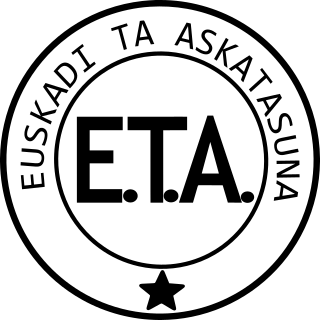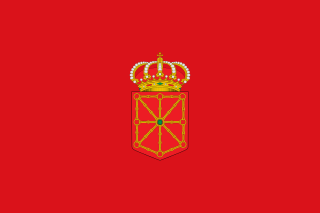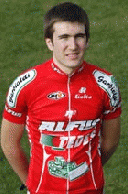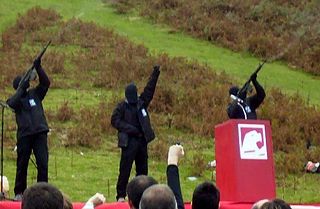
Basque is a language spoken by Basques and other residents of the Basque Country, a region that straddles the westernmost Pyrenees in adjacent parts of northern Spain and southwestern France. Basque is classified as a language isolate. The Basques are indigenous to and primarily inhabit the Basque Country. The Basque language is spoken by 806,000 Basques in all territories. Of these, 93.7% (756,000) are in the Spanish area of the Basque Country and the remaining 6.3% (50,000) are in the French portion.
The Basques are a Southwestern European ethnic group, characterised by the Basque language, a common culture and shared genetic ancestry to the ancient Vascones and Aquitanians. Basques are indigenous to, and primarily inhabit, an area traditionally known as the Basque Country —a region that is located around the western end of the Pyrenees on the coast of the Bay of Biscay and straddles parts of north-central Spain and south-western France.

ETA, an acronym for Euskadi Ta Askatasuna, was an armed Basque nationalist and far-left separatist organization in the Basque Country between 1959 and 2018, with its goal being independence for the region. The group was founded in 1959 during the era of Francoist Spain, and later evolved from a pacifist group promoting traditional Basque culture to a violent paramilitary group. It engaged in a campaign of bombings, assassinations, and kidnappings throughout Spain and especially the Southern Basque Country against the regime, which was highly centralised and hostile to the expression of non-Castilian minority identities. ETA was the main group within the Basque National Liberation Movement and was the most important Basque participant in the Basque conflict.

The autonomous communities are the first-level administrative divisions of Spain, created in accordance with the Spanish Constitution of 1978, with the aim of guaranteeing limited autonomy to the nationalities and regions that make up Spain.

Navarre, officially the Chartered Community of Navarre, is a landlocked foral autonomous community and province in northern Spain, bordering the Basque Autonomous Community, La Rioja, and Aragon in Spain and Nouvelle-Aquitaine in France. The capital city is Pamplona. The present-day province makes up the majority of the territory of the medieval Kingdom of Navarre, a long-standing Pyrenean kingdom that occupied lands on both sides of the western Pyrenees, with its northernmost part, Lower Navarre, located in the southwest corner of France.

Basque nationalism is a form of nationalism that asserts that Basques, an ethnic group indigenous to the western Pyrenees, are a nation and promotes the political unity of the Basques, today scattered between Spain and France. Since its inception in the late 19th century, Basque nationalism has included Basque independence movements.

The Basque Nationalist Party, officially Basque National Party in English, is a Basque nationalist and regionalist political party. The party is located in the centre of the political spectrum.
Spanish names are the traditional way of identifying, and the official way of registering, a person in Spain. They are composed of a given name and two surnames. Traditionally, the first surname is the father's first surname, and the second is the mother's first surname. Since 1999, the order of the surnames in a family in Spain is decided when registering the first child, but the traditional order is nearly universally chosen.

The Basque Country is the name given to the home of the Basque people. The Basque Country is located in the western Pyrenees, straddling the border between France and Spain on the coast of the Bay of Biscay.

Gipuzkoa is a province of Spain and a historical territory of the autonomous community of the Basque Country. Its capital city is Donostia-San Sebastián. Gipuzkoa shares borders with the French department of Pyrénées-Atlantiques at the northeast, with the province and autonomous community of Navarre at east, Biscay at west, Álava at southwest and the Bay of Biscay to its north. It is located at the easternmost extreme of the Cantabric Sea, in the Bay of Biscay. It has 66 kilometres of coast land.
The Basque Country national football team represents the Basque Country in football. It selects players from the Basque Country autonomous community, Navarre and the French Basque Country and is organised by the Basque Football Federation. It is not affiliated with FIFA or UEFA and therefore only allowed to play friendly matches against FIFA or non-FIFA affiliated teams.

Basque cuisine refers to the cuisine of the Basque Country and includes meats and fish grilled over hot coals, marmitako and lamb stews, cod, Tolosa bean dishes, paprikas from Lekeitio, pintxos, Idiazabal sheep's cheese, txakoli, and Basque cider.

Basque Country may refer to:

Julen Goikoetxea Garate was a Basque racing cyclist from Ondarroa.

Basque dance is the folk dance by the Basque people of the Basque Country.

San Sebastián, officially known by the bilingual name Donostia / San Sebastián, is a city and municipality located in the Basque Autonomous Community, Spain. It lies on the coast of the Bay of Biscay, 20 km from the France–Spain border. The capital city of the province of Gipuzkoa, the municipality's population is 188,102 as of 2021, with its metropolitan area reaching 436,500 in 2010. Locals call themselves donostiarra (singular), both in Spanish and Basque. It is also a part of Basque Eurocity Bayonne-San Sebastián.

The Basque Autonomous Community [ A.C.], also officially called Euskadi [], is an autonomous community in northern Spain. It includes the Basque provinces of Araba, Bizkaia, and Gipuzkoa. It also surrounds an enclave called Treviño.

The Basque conflict, also known as the Spain–ETA conflict, was an armed and political conflict from 1959 to 2011 between Spain and the Basque National Liberation Movement, a group of social and political Basque organizations which sought independence from Spain and France. The movement was built around the separatist organization ETA, which had launched a campaign of attacks against Spanish administrations since 1959. ETA had been proscribed as a terrorist organization by the Spanish, British, French and American authorities at different moments. The conflict took place mostly on Spanish soil, although to a smaller degree it was also present in France, which was primarily used as a safe haven by ETA members. It was the longest running violent conflict in modern Western Europe. It has been sometimes referred to as "Europe's longest war".
The 1986 Tour of the Basque Country was the 26th edition of the Tour of the Basque Country cycle race and was held from 7 April to 11 April 1986. The race started in Antzuola and finished in Andoain. The race was won by Sean Kelly of the Kas team.
Uxue Iparragirre Larrañaga is a Spanish footballer who plays as a defender for Eibar.















